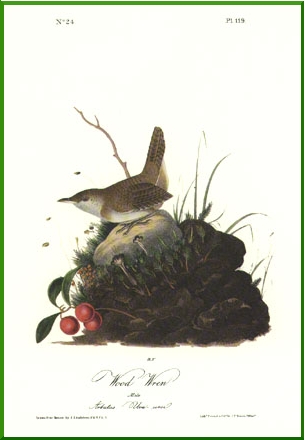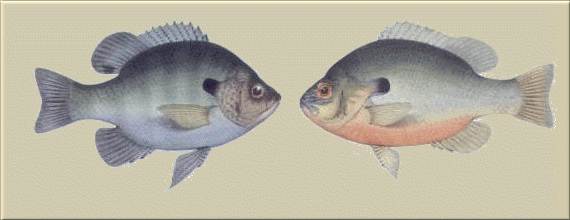
Volume 11

July, 1858 - February, 1859




I think that I speak impartially when I say that I have never met with a stream so suitable for boating and botanizing as the Concord, and fortunately nobody knows it. I know of reaches which a single country-seat would spoil beyond remedy, but there has not been any important change here since I can remember. The willows slumber along its shore, piled in light but low masses, even like the cumuli clouds above. We pass haymakers in every meadow, who may think that we are idlers. But Nature takes care that every nook and crevice is explored by some one. While they look after the open meadows, we farm the tract between the river's brinks and behold the shore from that side. We too are harvesting an annual crop, with our eyes, and think you not Nature is glad to display her beauty to us?
The mind tastes but few flavors in the course of a year. We are visited by few thoughts which are worth entertaining, and we chew the cud of these unceasingly. What ruminant spirits we are! I remember well the flavor of that rusk which I bought in New York two or three months ago and ate in the cars for my supper. A fellow passenger too pretended to praise it, and yet, O man of little faith! he took a regular supper at Springfield. They cannot make such in Boston. The mere fragrance, rumor, and reminiscence of life is all that we get, for the most part. If I am visited by a thought, I chew that cud each successive morning, as long as there is any flavor in it. Until my keepers shake down some fresh fodder. Our genius is like a brush which only once in many months is freshly dipped into the paint pot. It becomes so dry that though we apply it incessantly, it fails to tinge our earth and sky. Applied to the same spot incessantly, it at length imparts no color to it.
It is good policy to be stirring about your affairs, for the reward of activity and energy is that if you do not accomplish the object that you had professed to yourself, you do accomplish something else. So, in my botanizing or natural history walks, it commonly turns out that, going for one thing, I get another thing. "Though man proposeth, God dispotheth all."
It requires a different intention of the eye in the same locality to see different plants, as for example, Juncacaea and Graminaea even, i.e., I find that when I am looking for the former I do not see the latter in their midst. How much more, then, it requires different intentions of the eye and mind to attend to different departments of knowledge! How differently the naturalist and the poet look at objects! A man sees only what concerns him. A botanist absorbed in the pursuit of grasses does not distinguish the grandest pasture oaks. He as it were tramples down oaks unwittingly in his walk.
The most persistent and sacrificing endeavors are necessary to success in any direction.

See B_______ a-fishing notwithstanding the wind. A man runs down, fails, loses self-respect, and goes a-fishing, though he were never seen on the river before. Yet methinks his "misfortune" is good for him, and he is the more mellow and humane. Perhaps he begins to perceive more clearly that the object of life is something else than acquiring property, and he really stands in a truer relation to his fellow-men than when he commanded a false respect of them. There he stands at length, perchance better employed than ever, holding communion with nature and himself and coming to understand his real position and relation to men in this world. It is better than a debtor's prison, better than most successful money-getting.
I was the more pleased with the sight of the trays because the tools were so simple, and they were made by hand, not by machinery. They may make equally good pails, and cheaper as well as faster at the pail-factory with the home-made ones, but that interests me less, because a man is partly turned into a machine there himself. In this case, the workman's relation to his work is more poetic, he also shows some dexterity and is more of a man. You come away from the great factory saddened, as if the chief end of man were to make pails; but in the case of a countryman who makes a few by hand, rainy days, the relative importance of human life and of pails is preserved, and you come away thinking of the simple and helpful life of the man -- you do not turn pale at the thought -- and would fain go to making pails yourself. We admire more the man who can use an axe or an adze skillfully than him who can merely tend a machine. When labor is reduced to turning a crank it is no longer amusing nor truly profitable; but let this business become very profitable in a pecuniary sense, and so be "driven" as the phrase is, and carried on on a large scale, and the man is sunk in it, while only the pail or the tray floats; we are interested in it in the same way as the proprietor or company is.
Though science may sometimes compare herself to a child picking up pebbles on the seashore, that is a rare mood with her; ordinarily her practical belief is that it is only a few pebbles that are not known, weighed, and measured.
Some, being offended, think sharp and satirical things, which yet they are not prepared consciously to utter. But in some unguarded moment these things escape from them, when they are as it were unconscious. They betray their thoughts, as it were by talking in their sleep, for the truth will out, under whatever veil of civility.
Talk of fate! How little can one know what is fated to another! -- what he can do and what he can not do! I doubt whether one can give or receive any very pertinent advice. In all important crises, one can only consult his genius. Though he were the most shiftless and craziest of mortals, if he still recognizes that he has any genius to consult, none may presume to go between him and her. They, methinks, are poor stuff and creatures of a miserable fate who can be advised and persuaded in very important steps. Show me a man who consults his genius, and you have shown me a man who cannot be advised. You may know what a thing costs or is worth to you; you can never know what it costs or is worth to me. All the community may scream because one man is born who will not do as it does, who will not conform because conformity to him is death -- he is so constituted. They know nothing about his case; they are fools when they presume to advise him. The man of genius knows what he is aiming at; nobody else knows. And he alone knows when something comes between him and his object. In the course of generations, however, men will excuse you for not doing as they do, if you will bring enough to pass in your own way.

This is the warm and sunny side to which any one -- man, bird, or quadruped -- would soonest resort in cool weather. I notice a few chickadees there in the edge of the pines, in the sun, lisping and twittering cheerfully to one another, with a reference to me, I think -- the cunning and innocent birds.
When I hear the hypercritical quarreling about grammar and style, the position of the particles, etc., etc., stretching or contracting every speaker to certain rules of theirs -- Mr Webster, perhaps, not having spoken according to Mr. Kirkham's rule -- I see that they forget that the first requisite and rule is that expression shall be vital and natural, as much as the voice of a brute or an interjection: first of all, mother tongue; and last of all, artificial or father tongue. Essentially your truest poetic sentence is as free and lawless as a lamb's bleat. The grammarian is often one who can neither cry nor laugh, yet thinks that he can express human emotions. So the posture masters tell you how to walk -- turning your toes out, perhaps excessively -- but so the beautiful walkers are not made.
Think of the consummate folly of attempting to go away from here! When the constant endeavor should be to get nearer and nearer here!
We do not realize how far and widely, or how near and narrowly, we are to look. The greater part of the phenomena of nature are for this reason concealed to us all our lives. Here too, as in political economy, the supply answers to the demand. Nature does not cast pearls before swine. There is just so much beauty visible to us in the landscape that we are prepared to appreciate -- not a grain more.
















